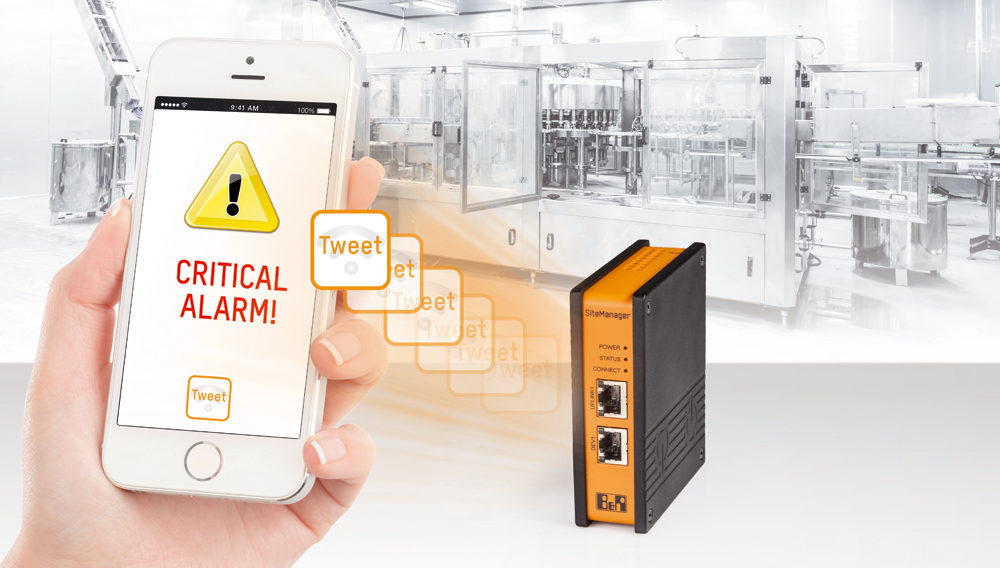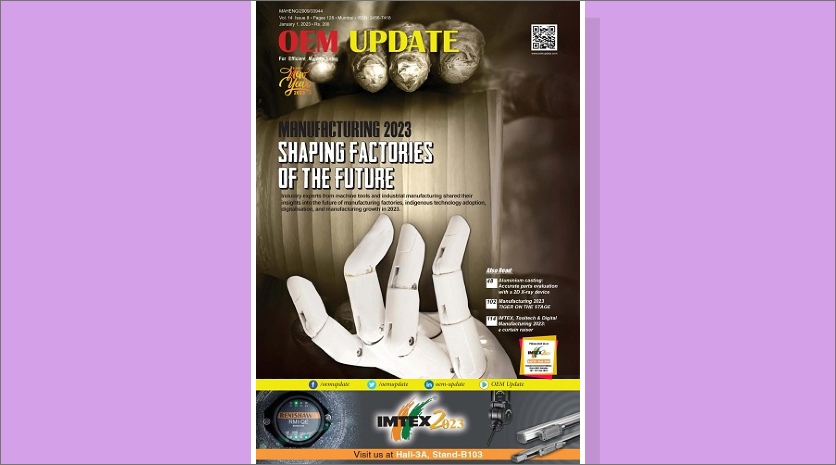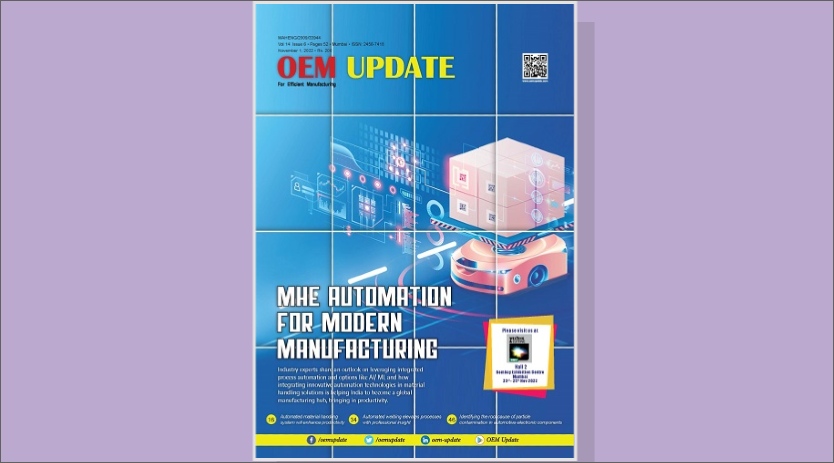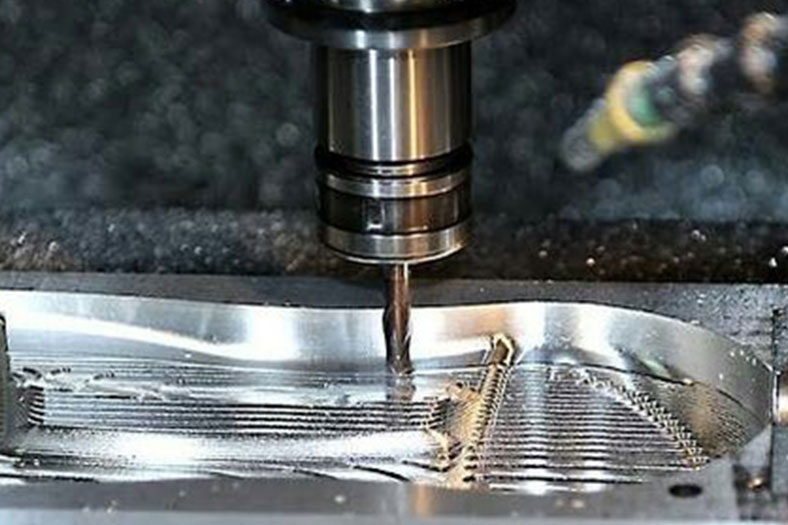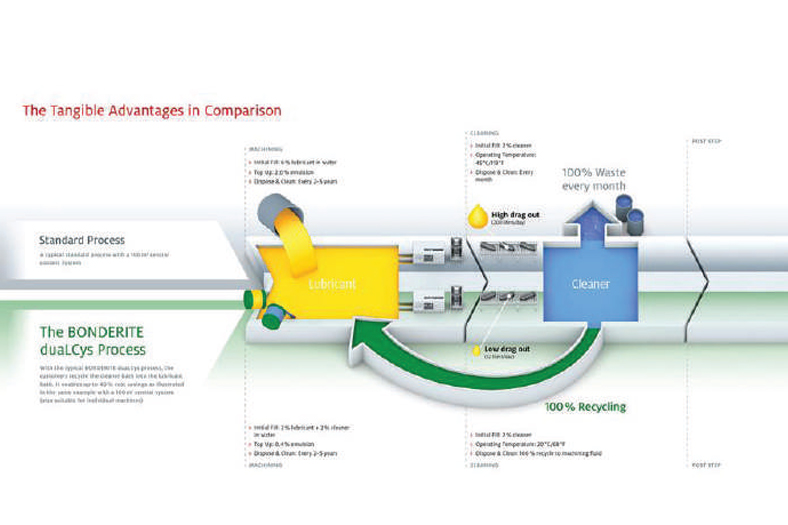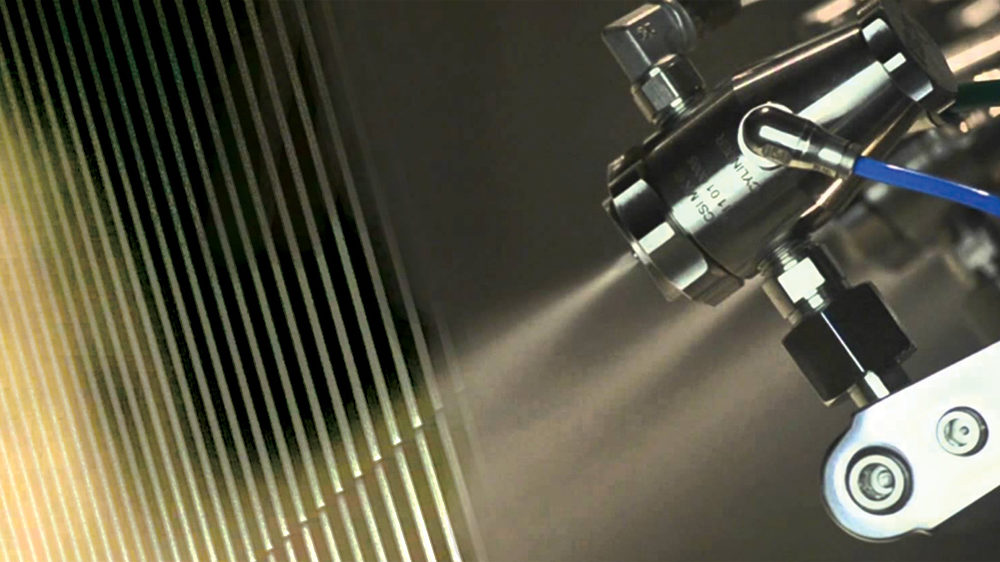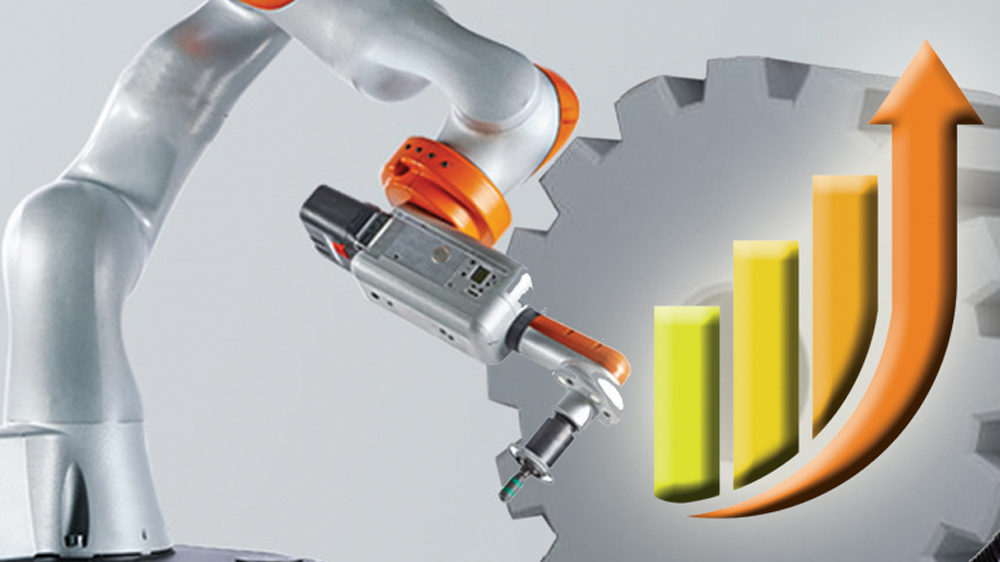How to stay connected to your manufacturing facility
By OEM Update Editorial July 17, 2017 12:34 pm IST
Featuring the advanced technologies that enable staying connected to a manufacturing facility.
Digitalisation is changing the face of manufacturing, and industries need to embrace it in order to remain competitive. Being connected results in better manufacturing processes and better quality. It helps manufacturers to achieve business outcomes such as cost effectiveness and product quality. It leads to better machine usage which can lead to increase in production and faster return on investment for the machine tool.
IoT enabled technologies like Industry 4.0 adoption, Robotic automation will help manufacturers to have full visibility of their operations and allow them to be responsive to information about inventory, raw material, customer demands, quality ensuring that opportunities for improvement are highlighted and action is taken. Let’s take a look at experts’ opinion on how to stay connected to your manufacturing facility:
Cost reduction and productivity improvement
Speaking about the importance of staying connected to the manufacturing facility, Ninad Deshpande, Head – Marketing, B&R Industrial Automation, says, “Staying connected to manufacturing facilities leads to improved productivity and cost reduction. Manufacturers can unleash their vision, optimise machine reliability, improve quality, and evaluate production processes, which help to spot areas where they can streamline their operations and eliminate redundancies. Management can use available data for analytics and leverage the benefits of Internet of Things (IoT), which will eventually help in transforming manufacturing processes. Primarily, data is of utmost importance and on converting it to information enables the users to take decisions and make specific process improvements.”
Ways to increase productivity
Translation of available data into valuable information can provide the management, production and maintenance teams with a holistic view of the production processes and help them in achieving operational excellence and enhancing profitability. B&R addresses all these needs of manufacturing facilities worldwide and provides solutions, which enables network safety, energy monitoring, condition monitoring and OEE data acquisition, Deshpande informs.
With B&R’s mapp Technology, one can calculate Overall Equipment Effectiveness (OEE) and display it clearly on the screen, which highlights opportunities to increase productivity. Internet and smartphones are the easiest methods to stay connected with the production operations and collect data from the field.
However, Deshpande observes, “It is essential to adhere to the stringent security requirements laid down by the IT teams in the factory. Secure remote maintenance from B&R provides manufacturers with a possibility to stay connected with their machines with complete safety and security. This remote monitoring and diagnostics solution makes it easy to quickly respond to unforeseen problems, thus accelerating servicing requests and reducing downtime.”
Secure remote maintenance coupled with mapp Technology makes it possible to even diagnose machines right down to variable level, claims Deshpande. He adds, “Machine builders can now service their machines installed across the globe even by sitting in their offices and can access logbook entries, application data and much more. It also enables the maintenance teams in the factory to access machine health data at all times even on their smart phones. The solution utilises the latest IT and security standards and allows for significant savings with low investment costs.”
Provide cutting-edge solutions
Embracing new technologies results in improving productivity and provides cutting-edge solutions. This enables them to compete against challenges and stay ahead in competition. “New technology adoptions should be responsive to the market demands and in-line with the witnessed technology trends and companies should design a roadmap at an early stage to reap the benefit of these revolutions. B&R’s leading technologies help manufacturing units to adopt these latest technology trends, be Industrial IoT ready, and drive intelligent assets, cognitive processes and smarter resources,” concludes Deshpande.
According to Vivek Verma, CIO, Varroc, “Digitalisation is changing the face of manufacturing, and industries need to embrace it in order to remain competitive. Being connected results in better manufacturing processes and better quality. It helps manufacturers to achieve business outcomes such as cost effectiveness and product quality. It leads to better machine usage which can lead to increase in production and faster return on investment for the machine tool.”
Verma further explains, “Industrial automation methods helps manufacturers to identify and take actions on negative factors such as unexpected downtime, equipment malfunction, production losses caused by shortage of resources and increases the overall equipment utilisation rate. It also helps us with efficient supply chain management and in designing a value chain proposition for our customers.”
Adoption of advanced IoT-enabled technologies
Verma opines, “IoT enabled technologies like Industry 4.0 adoption, robotic automation will help manufacturers to have full visibility of their operations and allow them to be responsive to information about inventory, raw material, customer demands, quality ensuring that opportunities for improvement are highlighted and action is taken.”
Other options like MES, business analytics, unified communication and collaboration, ERP systems etc. will help manufacturers to save money and time and help them in improving product quality, customer satisfaction and supplier relations. Creating a digital supply chain would prove to be responsive to opportunities, asserts Verma.
Tools and strategies for quality improvement
Varroc has taken several initiatives to adopt these tools and technologies for its production plants, which include unified communication and collaboration, business analytics, IoT, MES and SAP. The technologies which are lower in cost and high in productivity are aggressively being used and the technologies and tools that are capital intensives are evaluated from value chain proposition and have planned a phase wise deployment or adoption targets, Verma informs. He adds, “We are using QCD and TPM principles and KPIs around it. Automation helps us to monitor KPIs and take real time decisions on processes, people and defects at shop floor. Industrial automation plays an important role in improving product quality which can lead to increase in production and faster return on investment. Use of proper automation solutions is certain to prepare Indian manufacturers for more competition and equip them with the necessary pace and efficiency. With increasing consumer demands, legislation and competitiveness in the domestic market, one with proper automation solutions stand to win.”
Verma further claims, “It is a matter of pride for us that Varroc is leading in making this push into the realm of Industry 4.0 adoption. We have started implementing this solution across all of our plants and we were able to see the results. Machines and systems were seamlessly connected on Datonis in real time for all our operational metrics of machine utilisation, performance, quality, conditions and energy consumption.”
Role of automation in creating connected shop-floors
Sharing his viewpoint Sameer Gandhi, Managing Director, OMRON Automation, India says, “A connected shop floor, based on an avant-garde automation platform, leads to creation of intelligent machines. The machines which not only communicate with each other but also with the people working with them in their environment via a well-knitted and intricate network of products, systems, platforms and applications. This results into smart optimisation of the industrial processes so as to enable the manufacturers to make the most of the industrial internet revolution. At the core of the technology, currently, are varied smart sensors and PLCs that can connect to the MES or ERP layer facilitating access to real-time information exchange.”
The Industrial IoT: Capturing the Potential
With Industrial Internet of Things (IIoT), OMRON is enabling to connect the sensors in a way wherein we’re not only getting information from the sensor but also about the sensor. So, we can now look into ambient conditions affecting the sensors and other deeper aspects, allowing us to predict the failure before it actually happens thus reducing disruptions due to unscheduled downtime. Additionally, since the PLCs are connected to the plant ERP or MES, this sensor information can be logged in the MES as well. This enables long term analysis of the data. For instance, statistical analysis of such data gathered over a period of time could indicate that a particular sensor is failing repeatedly, thus triggering a possible change in location or redesign of a section or process to improve the overall uptime and productivity.
Apart from this there are many more deliverables due to this real time monitoring – such as prediction of maintenance needs, prevention of disruptions, economies of scale by bringing down the operating cost and, thus, production of better output which benefits not only the manufacturers but the end users too, concludes Gandhi.
Cookie Consent
We use cookies to personalize your experience. By continuing to visit this website you agree to our Terms & Conditions, Privacy Policy and Cookie Policy.



